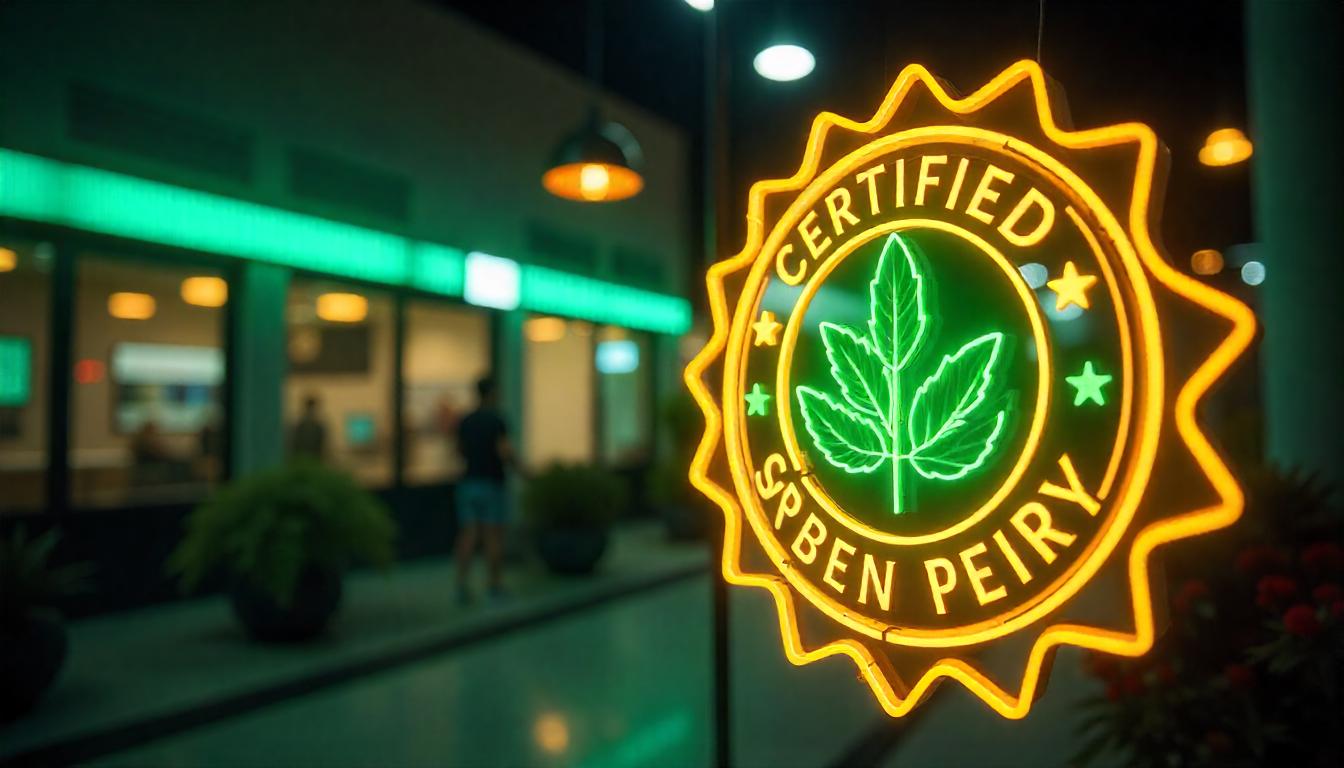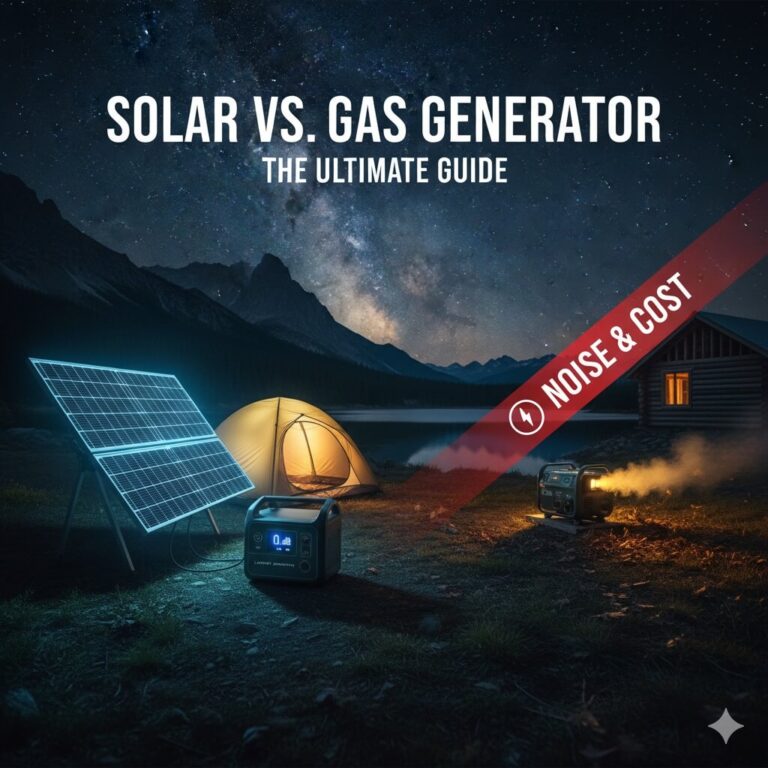Building a Sustainable Edge: How Green Certifications Boost Your Energy Business Credibility & Bottom Line

The global energy landscape is undergoing a monumental transformation. From fluctuating fossil fuel markets to the urgent imperative of climate action, businesses are facing unprecedented pressure to operate more sustainably. In this dynamic environment, merely claiming to be green is no longer enough. Consumers, investors, and even regulators are demanding tangible, verifiable proof of environmental commitment. This is where green business certifications step in, offering a powerful pathway to differentiate your company and build unshakeable trust.
This article will cut through the green noise and dive deep into the world of sustainable energy standards. We’ll explore why eco-friendly business credibility is paramount, dissect the leading certifications relevant to the energy sector—from B Corp to ISO 14001, LEED, and Green-e Energy—and reveal the strategic advantages they unlock. You’ll learn how renewable energy accreditation can attract more customers, secure vital funding, and provide your business with a crucial competitive edge. By the end, you’ll understand why these certifications are not just badges for marketing but strategic frameworks for operational excellence and long-term resilience, impacting your bottom line and solidifying your place in a greener future.
- 1. What Are Green Business Certifications, and Why Do They Matter to Energy Companies?
- 2. Key Green Certifications for Building Your Energy Business’s Sustainable Edge
- 2.1. B Corp Certification: Proving You’re a Force for Good
- 2.2. ISO Standards: Global Frameworks for Environmental & Energy Management
- 2.3. LEED (Leadership in Energy and Environmental Design) Certification: For Green Projects
- 2.4. Renewable Energy Certificates (RECs) & Green-e Energy Certification: Proving Your Clean Energy Claims
- 2.5. Other Emerging & Niche Accreditations:
- 3. Unpacking the Impact: How Certifications Boost Your Credibility & More
- 4. Navigating the Certification Journey: A Practical Guide for Energy Businesses
- Conclusion: Certifying Your Commitment for a Greener Tomorrow
- Frequently Asked Questions (FAQs) About Green Business Certifications
- Q1: What’s the main difference between B Corp and ISO 14001 for an energy business?
- Q2: How much does it typically cost to get a green business certification?
- Q3: Can small energy businesses realistically achieve green certifications?
- Q4: How do green certifications help attract investors?
- Q5: What is the “re-certification” process like for green standards?
1. What Are Green Business Certifications, and Why Do They Matter to Energy Companies?
At its core, a green business certification is a stamp of approval from an independent, third-party organization. It signifies that a company has met specific environmental, social, and governance (ESG) performance standards. Think of it as a quality assurance label for your sustainability claims.
Why are these certifications indispensable for energy businesses?
- Verification and Trust: In an era rife with “greenwashing,” certifications provide verifiable proof that your company is genuinely committed to sustainable practices, moving beyond mere rhetoric.
- Transparency and Accountability: They offer a clear, transparent framework for your environmental efforts, allowing stakeholders to see precisely how you measure up.
- Benchmarking and Improvement: Certifications provide a structured pathway for continuous improvement, setting baselines and targets for better environmental performance.
The market trend unequivocally supports the growing importance of these credentials. The global sustainability certification market is projected to grow from USD 3.10 billion in 2025 to USD 4.25 billion by 2030, at a compound annual growth rate (CAGR) of 6.5%. This growth is fueled by increasing regulatory demands, a greater corporate focus on ESG targets, and a rising consumer preference for green products and services. As a pivotal industry driving climate action, energy businesses are under intense scrutiny and have a unique opportunity to lead by example through formal certification.
2. Key Green Certifications for Building Your Energy Business’s Sustainable Edge
Choosing the right sustainable energy standards is crucial. Here’s a breakdown of the most relevant and impactful green business certifications for the energy sector:
2.1. B Corp Certification: Proving You’re a Force for Good
B Corp Certification is a holistic standard for businesses that meet high benchmarks of verified social and environmental performance, accountability, and transparency. It evaluates a company across five key impact areas: governance, workers, community, environment, and customers.
- Relevance for Energy Businesses: The “Environment” section of the B Impact Assessment specifically scrutinizes energy usage, waste management, on-site renewable energy generation, and overall environmental stewardship within your operations.
- Benefit Highlight: Achieving B Corp status resonates deeply with purpose-driven consumers and can significantly enhance your brand reputation, attracting customers who prioritize ethical and sustainable businesses. Case studies like Zentek and ZLC Energy, both renewable energy businesses, highlight how the rigorous B Corp process fostered internal engagement, validated their commitment, and strengthened their market position.
2.2. ISO Standards: Global Frameworks for Environmental & Energy Management
The International Organization for Standardization (ISO) offers globally recognized standards for management systems, including critical ones for sustainability.
- ISO 14001 (Environmental Management Systems—EMS):
- What it is: Provides a framework for organizations to design and implement an effective environmental management system. It’s about systematically managing your environmental responsibilities.
- Relevance: Helps energy companies formalize processes for reducing waste, optimizing resource use, ensuring legal compliance with environmental laws, and systematically reducing harmful environmental impacts throughout their operations.
- Benefit Highlight: Ensures robust legal compliance and often leads to improved operational efficiency by identifying areas of resource waste.
- ISO 50001 (Energy Management Systems – EnMS):
- What it is: Specifically focuses on helping organizations manage energy consumption more effectively.
- Relevance: Directly benefits energy businesses by providing a framework to improve energy efficiency, reduce carbon footprints, set energy performance indicators, and drive continuous improvement in their own energy use.
- Benefit Highlight: Leads to tangible cost savings through reduced energy consumption and provides a recognized route to compliance with energy efficiency regulations (e.g., ESOS in the UK).
2.3. LEED (Leadership in Energy and Environmental Design) Certification: For Green Projects
LEED is an internationally recognized green building rating system developed by the U.S. Green Building Council (USGBC). While primarily for buildings, it’s highly relevant for energy businesses.
- Relevance for Energy Businesses:
- Solar Installers & Renewable Energy Integrators: Businesses designing or installing renewable energy systems (solar PV, geothermal) for buildings can help their clients achieve LEED points, especially under the “Energy and Atmosphere” category.
- Energy Efficiency Service Providers: Companies offering HVAC upgrades, smart lighting, or energy management systems contribute directly to a building’s LEED score.
- Green Building Developers: Energy companies involved in developing sustainable infrastructure or building their own green facilities can pursue LEED for their projects.
- Benefit Highlight: Opens doors to lucrative green building projects, increases property value, and enhances the credibility of your energy installations and solutions within the sustainable construction market.
2.4. Renewable Energy Certificates (RECs) & Green-e Energy Certification: Proving Your Clean Energy Claims
Renewable Energy Certificates (RECs) are market-based instruments representing the environmental attributes of 1 MWh of renewable electricity generation. Green-e Energy is North America’s leading independent consumer protection program for verifying the integrity of RECs.
- Relevance for Energy Businesses:
- Energy Suppliers: If your business sells renewable electricity, Green-e Energy certification ensures your claims are verifiable and trustworthy.
- Large Energy Consumers: Companies purchasing renewable energy or RECs to meet sustainability goals can use Green-e Energy to ensure their procurement is credible and prevents “double-counting.”
- Benefit Highlight: Provides verified substantiation for clean energy usage claims, builds trust in renewable energy procurement, and aligns with leading sustainability programs like LEED and RE100. In 2023, Green-e Energy certified retail sales totaled over 125 million MWh, marking a near 10% increase from 2022, showcasing the growing market demand for verified clean energy.
2.5. Other Emerging & Niche Accreditations:
- The Carbon Trust Standard: Recognizes verified carbon footprint reduction, primarily focusing on Scope 1 and 2 emissions through energy efficiency and carbon management.
- NABCEP (North American Board of Certified Energy Practitioners): While for individuals, companies employing NABCEP-certified professionals demonstrate a commitment to expertise and quality in solar and renewable energy installations, indirectly boosting their renewable energy accreditation.
3. Unpacking the Impact: How Certifications Boost Your Credibility & More
Achieving eco-friendly business credibility through certification offers a multitude of tangible and intangible benefits that extend far beyond a logo on your website.
- Elevated Market Perception & Customer Trust:
- Combatting Greenwashing: In a crowded market, certifications serve as a trusted third-party endorsement, proving your commitment is genuine.
- Increased Consumer Confidence: Studies show that over 54% of consumers are more likely to purchase from businesses with verifiable green credentials. For energy businesses, this translates to attracting more eco-conscious clients who actively seek sustainable solutions.
- Significant Competitive Advantage:
- Differentiation: Certifications help your business stand out from competitors who make unsubstantiated green claims.
- Access to New Markets: Many government tenders, large corporations, and even international contracts now prefer or mandate suppliers to hold specific certifications, opening doors to previously inaccessible opportunities.
- Winning Bids: Being certified can be the decisive factor in securing a competitive bid, proving your operational excellence and commitment to sustainability.
- Enhanced Access to Funding & Investment:
- Attracting ESG Investors: Environmental, social, and governance (ESG) factors are paramount for modern investors. Certifications provide clear evidence of your ESG performance, improving your appeal to impact investors, venture capitalists, and even traditional lenders who may offer better terms for sustainable businesses. The ESG investment market continues to grow, with increasing pressure from investors for companies to attain ESG goals.
- Operational Efficiency & Cost Savings:
- Process Optimization: The rigorous certification process often forces businesses to meticulously review their operations, identifying inefficiencies in energy use, waste management, and resource allocation.
- Long-term Savings: Implementing an EMS (like ISO 14001) leads to reduced waste disposal costs, lower utility bills from improved energy efficiency, and more optimized resource utilization, directly impacting your bottom line.
- Strengthened Regulatory Compliance & Risk Mitigation:
- Proactive Compliance: Certifications often align with or exceed regulatory requirements, helping your business stay ahead of increasingly stringent environmental laws.
- Reduced Risk: A well-managed EMS minimizes the likelihood of environmental incidents, fines, and reputational damage from non-compliance.
- Attracting & Retaining Top Talent:
- Purpose-Driven Workforce: Today’s workforce, particularly younger generations, seeks employers whose values align with their own. Being a certified green business enhances employee morale, boosts engagement, and helps attract and retain top talent looking for meaningful work.
- Platform for Continuous Improvement: Many certifications require periodic reassessment, fostering a culture of ongoing sustainability enhancement and innovation within your organization.
4. Navigating the Certification Journey: A Practical Guide for Energy Businesses
Embarking on the path to green business certifications can seem daunting, but a structured approach simplifies the process.
- Step 1: Research & Strategic Selection:
- Don’t jump in blindly. Start by identifying which certifications align best with your business model, scale, and specific sustainability goals. Are you focused on overall ethos (B Corp), operational environmental management (ISO 14001), energy efficiency (ISO 50001), project-specific green building (LEED), or verifying clean energy claims (Green-e Energy)?
- Tip: Consider what will resonate most with your target customers and industry partners.
- Step 2: Self-Assessment & Gap Analysis:
- Once you’ve chosen, thoroughly review the chosen certification’s criteria.
- Conduct an internal audit to evaluate your current practices against these standards. Identify your strengths and, more importantly, areas where you need to improve or implement new processes.
- Step 3: Implementation & Documentation:
- This is where the real work happens. Integrate sustainable practices into your daily operations, supply chain, governance, and services. This might involve adopting new technologies, revising policies, or providing employee training.
- Meticulously compile all necessary data, policies, and evidence required by the certification body. This documentation is critical for the verification stage.
- Step 4: Application & Verification/Audit:
- Submit your formal application and all supporting documentation.
- Prepare for a rigorous third-party audit or review process, which may include on-site visits, interviews, and detailed document reviews. This phase demands significant time and resource investment.
- Step 5: Certification & Ongoing Maintenance:
- Upon successfully meeting all requirements, your business will be granted certification!
- Remember, most green certifications are not one-time achievements. They require ongoing commitment, regular monitoring, and periodic re-audits (e.g., B Corp re-certification every three years) to ensure continuous compliance and improvement.
Cost & Time Considerations:
The cost and time commitment for how to get green certified vary significantly based on the chosen certification, your company’s size, and your current sustainability maturity.
- Fees: Application and annual fees can range from a few hundred dollars for smaller, simpler certifications to tens of thousands annually for more comprehensive ones like B Corp (e.g., $1,000 – $45,000 annually based on revenue). Implementing an ISO 14001 system, including internal changes and external audits, can range from $25,000 to $100,000+ for initial setup, though operational savings can offset this over time.
- Timeframe: The entire process can take anywhere from a few months to over a year, depending on the complexity of the certification and the resources dedicated to it. Small businesses can start by adopting sustainable practices before committing to formal certification, and many certifying bodies offer guidance tailored to smaller enterprises.
Conclusion: Certifying Your Commitment for a Greener Tomorrow
In today’s conscientious marketplace, green business certifications are far more than mere buzzwords or marketing ploys. They are robust, strategic instruments that build deep, verifiable, eco-friendly business credibility, differentiating the truly committed from the merely interested.
For energy businesses, formalizing sustainable practices through these sustainable energy standards is no longer optional; it’s a strategic imperative for long-term success. These certifications provide a comprehensive framework for operational excellence, driving continuous improvement and unlocking new opportunities in a rapidly expanding, sustainability-driven economy. By undergoing the rigorous process of certification, energy companies not only validate their existing green efforts but also embed sustainability deeper into their core operations, making them stronger, more resilient, and more attractive to all stakeholders.
As ESG pressures intensify and green markets continue to expand, energy businesses that embrace and achieve these recognized certifications will be best positioned to attract vital investment, win customer loyalty, and ultimately lead the global transition to a truly sustainable future.
Is your energy business ready to formalize its commitment to sustainability and gain an unparalleled competitive edge? Explore the certifications discussed and take the first step towards a more credible, sustainable, and prosperous future. Share your journey or questions in the comments below—let’s build a greener tomorrow together!
Frequently Asked Questions (FAQs) About Green Business Certifications
Q1: What’s the main difference between B Corp and ISO 14001 for an energy business?
A: B Corp certification is a holistic assessment of a company’s overall social and environmental performance, governance, and transparency. ISO 14001, on the other hand, is specifically an international standard for establishing and maintaining an Environmental Management System (EMS), focusing on how a company manages its environmental responsibilities and impacts. An energy business might pursue B Corp for a broad sustainability ethos and ISO 14001 for rigorous internal environmental management.
Q2: How much does it typically cost to get a green business certification?
A: The cost varies significantly based on the certification, company size, and existing practices. Fees can range from a few hundred dollars to tens of thousands annually. For example, B Corp fees vary by revenue, while ISO 14001 implementation and audit costs can be substantial upfront but lead to long-term savings. Investments in operational changes may also be required.
Q3: Can small energy businesses realistically achieve green certifications?
A: Yes, many green certifications are scalable, offering requirements and support tailored to smaller businesses. While it requires dedication, focusing on one or two relevant certifications that align with your business activities can be a realistic and highly beneficial goal for small and medium-sized energy businesses. Many certifying bodies offer guidance to help streamline the process.
Q4: How do green certifications help attract investors?
A: Green certifications demonstrate a company’s verifiable commitment to ESG (environmental, social, and governance) factors, which are increasingly critical for investors. Certifications signal lower environmental risks, better long-term resilience, and alignment with ethical investment mandates, making the business more appealing to impact investors, ESG funds, and even traditional lenders.
Q5: What is the “re-certification” process like for green standards?
A: Most green certifications are not permanent. They require periodic recertification (e.g., B Corp typically every three years, ISO annually with a major re-audit every three years) to ensure ongoing compliance and continuous improvement. This often involves submitting updated data, re-evaluating practices, and undergoing further audits to maintain your certified status.



